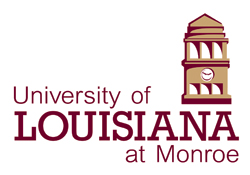Published June 02, 2014
University of Louisiana at Monroe alumnus Dr. Vishal S. Vaidya was honored by the
Society of Toxicology (SOT) with the 2014 SOT Leading Edge in Basic Science Award.
Vaidya, a 2003 ULM toxicology Ph.D. graduate, is an assistant professor of medicine
and environmental health at Harvard Medical School and Harvard School of Public Health.
Vaidya leads the Systems Toxicology Program within the Harvard Program in Therapeutic
Sciences, and directs the Laboratory of Kidney Toxicology and Regeneration at Brigham
and Women’s Hospital.
His laboratory uses cellular systems, mouse models, as well as human biospecimens,
and applies methodologies at the interface of bioinformatics, cell & molecular biology,
systems toxicology, and translational science in understanding kidney disease.
According to the SOT, the award was given in honor of discoveries that illuminate
the heart of toxicology.
With this award, SOT—a professional association of more than 7,700 toxicologists—annually
honors a scientist whose recent research has made influential contributions to understanding
the fundamental mechanisms of the science of toxicology.
Dr. Frank D. Sistare nominated Vaidya for the award. In an interview with SOT, Sistare
said, “Dr. Vaidya’s work over the past five years will change the way textbooks are
written and science is conducted with respect to deploying biomarkers for monitoring
kidney damage."
"His research has set a high standard for future safety biomarker qualification efforts,
while demonstrating the tremendous value that such efforts can bring to drug development.”
The SOT Leading Edge in Basic Science Award recognized Vaidya for his work with a
protein known as kidney injury molecule-1 (Kim-1) as a biomarker for kidney injury,
including developing new tools for biomarker detection.
Due, in part, to the research of Vaidya and his colleagues, Kim-1 is now an accepted
biomarker by the U.S. Food & Drug Administration (FDA), European Medical Agency, and
Japanese Agency for ascertaining renal injury during drug discovery tests. His work
also led to the development of a bedside test for monitoring Kim-1 levels in preclinical
and clinical settings.
About SOT:
Founded in 1961, the Society of Toxicology (SOT) is a professional and scholarly organization
of more than 7,700 scientists from academic institutions, government, and industry
representing the great variety of individuals who practice toxicology in the U.S.
and abroad.
SOT is committed to creating a safer and healthier world by advancing the science
of toxicology. The Society promotes the acquisition and utilization of knowledge in
toxicology, aids in the protection of public health, and has a strong commitment to
education in toxicology and to the recruitment of students and new members into the
profession.

